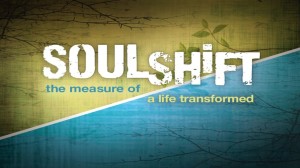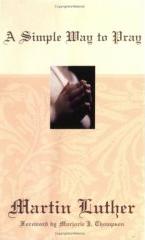Last week I made three points I would like to review…
- Prayer is not a method to get what we want from God, but the primary means of getting more of God Himself. Through prayer, we want to find our delight, comfort, and joy primarily in God as He becomes the end goal of our lives.
- Often times when we endeavor to press into God, our circumstances will get harder before they get better. This can be because God will begin to point-out and address areas in our lives that have become hindrances or barriers to our intimacy with God.
- Last Sunday I described those hindrances and barriers as (modern day) idols – or functional saviors.
- They are all the earth-bound things we tend to turn to, to quiet the (legitimate) longings and/or pain that we have in our souls.
- To unhook from some of those idols takes honesty, confession, repentance, surrender, and a heart that sincerely seeks to grow.
This morning you’ll need your Bibles open to Mathew 6; we will be looking at the whole chapter. We are asking two questions today:
- How do we prepare our hearts for prayer?
- What is the fruit of a heart prepared for prayer?
II. BODY
In asking the question: How do we prepare our hearts for prayer? We must first take a careful look at Mat 6:1 – and particularly the words “your righteousness.”
- NAS — “Beware of practicing your righteousness before men...”
- NIV — “Be careful not to practice your righteousness in front of others…”
In our study of prayer it is essential that we get started on the right foot. The phrase our righteousness is foundational because EVERYTHING else is built on top of it. If it’s really ‘your,’ or ‘our’ own righteousness – that we somehow earn our way into God’s presence, we will find ourselves turning away from the gospel and turning TO religion (or moralism).
If, however, it is God’s righteousness we will begin to generate a holy confidence and expectation to build a life of prayer. See also 6:33 – “But seek first His kingdom and His righteousness and all these things shall be added unto you.”
**We don’t need to make bigger commitments about prayer, what we really need is to think and to believe truer thoughts about God — thoughts that are shaped by the gospel. We are called to work, love, and pray FROM His righteousness, not FOR His righteousness.
With this in mind let’s look at four spiritual disciplines (or ‘means of grace’) we can participate with God in detaching from our various accumulated idolatrous affections and prepare our hearts to encounter God — and move from ‘ordinary prayer’ to ‘extraordinary prayer.’ They are:
- Giving
- Prayer
- Forgiveness
- Fasting
We’ll look briefly at one at a time:
1. Giving (or Generosity) – (vs. 2-4, 19-21)
These verses boils down to two overlapping ideas:
- Motive matters
- Generosity prepares our heart to pray
2 Cor 8:9: For you know the grace of our Lord Jesus Christ, that though He was rich, yet for your sake He became poor, so that you through His poverty might become rich. (This is a concise and powerful theological statement that summarizes the gospel)
2 Cor 8:9 is the cornerstone, the basis, for any theology of stewardship or generosity – identifying Jesus Christ as the most generous life ever lived…
As Christians we face countless enemies to the welfare of our souls, be it pride, lust, bitterness, or envy. But few are as powerful and relentless as greed. Greed has been deified in our American culture…
What is the most effective counter-attack to this insidious force of greed? Generosity.
No one ever started so rich and became as poor as the Lord Jesus Christ. And no one ever started out so poor and have become so rich as those who have placed their faith and trust in Jesus Christ for the forgiveness of sins.
Martin Luther spoke of a “great exchange,” or a transaction; our sin is charged to Jesus and Jesus’s righteousness is credited to us.
2. Prayer – (vs. 6:5-8) We are to, first and foremost, pray privately and pray authentically.
Have you ever shaken your fist at God over His seeming lack of response to your prayers?
If so, you’ll be able to relate to the prophet Habakkuk, who lived about 650 years before Christ.
His book begins with this complaint: “How long, O Lord, must I call for help, but You do not listen?” (Hab.1:2a).
God was not offended by Habakkuk’s prayer.
Passionate, honest, gritty, and even angry prayers have been recorded throughout the Bible.
And Habakkuk certainly wasn’t the only one to complain. Moses, Gideon, and David, and Elijah all questioned God.
Job even cursed the day God made him and said, “I loathe my very life; therefore I will give free rein to my complaint and speak out in the bitterness of my soul. I will say to God, ‘Do not condemn me, but tell me what charges you have against me. Does it please you to oppress me, to spurn the work of your hands…?'” (Job 10:1-3).
When we get into the Lord’s Prayer we’ll see that it’s best to approach God with humility, deep respect, and honor. Having said that, God can certainly take our intense emotions and questions.
2 Cor 4:17-18: “For momentary, light affliction is producing for us an eternal weight of glory far beyond all comparison, 18 while we look not at the things which are seen, but at the things which are not seen; for the things which are seen are temporal, but the things which are not seen are eternal.”
3. Forgiveness – I find it interesting that the Lord’s Prayer speaks to the issue of forgiveness, but Matthew comes back to it in 6:14-15.
Mark Twain said that, “Forgiveness is the fragrance that the flower leaves on the heel of the one who crushed it.”
When we truly experience the forgiveness of our sins there is an inward transformation that awakens in us a desire to glorify, trust, and obey God.
When we carry with us a deep appreciation for this grace-fueled transformation, we’ll have a heart that is more ready to forgive. This doesn’t mean the process will be comfortable or easy, but it will mean that we can approach someone in need of forgiveness remembering that we are just as much in need of what you’re about to give to him or her.
4. Fasting — “I humbled my soul with fasting” (Psalm 35:13b)
Isaiah 58:6-14
“Is this not the fast which I choose, To loosen the bonds of wickedness, To undo the bands of the yoke, And to let the oppressed go free And break every yoke? 7 “Is it not to divide your bread with the hungry And bring the homeless poor into the house; When you see the naked, to cover him; And not to hide yourself from your own flesh? 8 “Then your light will break out like the dawn, And your recovery will speedily spring forth; And your righteousness will go before you; The glory of the Lord will be your rear guard. 9 “Then you will call, and the Lord will answer; You will cry, and He will say, ‘Here I am.’ If you remove the yoke from your midst, The pointing of the finger and speaking wickedness, 10 And if you give yourself to the hungry And satisfy the desire of the afflicted, Then your light will rise in darkness And your gloom will become like midday. 11 “And the Lord will continually guide you, And satisfy your desire in scorched places, And give strength to your bones; And you will be like a watered garden, And like a spring of water whose waters do not fail. 12 “Those from among you will rebuild the ancient ruins; You will raise up the age-old foundations; And you will be called the repairer of the breach, The restorer of the streets in which to dwell. 13 “If because of the sabbath, you turn your foot From doing your own pleasure on My holy day,
And call the sabbath a delight, the holy day of the Lord honorable, And honor it, desisting from your own ways, From seeking your own pleasure And speaking your own word, 14 Then you will take delight in the Lord, And I will make you ride on the heights of the earth; And I will feed you with the heritage of Jacob your father, For the mouth of the Lord has spoken.”
A simple definition for fasting would be voluntary abstinence of our appetites and our soulish longings for spiritual reasons. The Bible speaks of it not as an option but as an expected and regularly practiced spiritual discipline.
There are many different ways to fast.
- We can fast food and just drink water or juice
- We can eat vegetables and/or fruit only (this has been called a “Daniel Fast,” see Daniel 1:8-17)
- We can choose not to eat any sugar or carbohydrates
- We can fast one or two meals a day
- We can fast from sun-up to sun-down.
- Paul encourages married couples to occasionally fast sexual intercourse, “that you may devote yourselves to prayer…” (1 Corinthians 7:5).
- We can fast television or the internet and pray instead!
Before we fast it is important to seek the Lord regarding what would be appropriate.
What is the fruit of a heart prepared for prayer?
Preparing our hearts for prayer, learning how to pray, and leaning into prayer is the cure for anxiety.
Vs. 25-34 are not to be seen as admonitions to simply STOP BEING ANXIOUS! They are telling us that as we make God the object and desire of our prayers; as we seek to find our comfort and joy IN HIM through:
- Generosity
- Prayer
- Forgiveness
- Fasting
These spiritual disciplines, or ‘means of grace’ lead us into the presence of God, which BECOMES the cure to our anxiety. God is the goal of prayer, but the loss of anxiety – or peacefulness is the fruit.
CONCLUSION
Who are the two most important people who ever lived?
Certainly, Jesus. The first One is easy, but who’s the second one? Adam.
There are only two groups of people on the earth:
- Those who are in Adam
- Those who are in Christ.
If you are an active, intentional follower of Jesus Christ your past may help to EXPLAIN you but your past does not DEFINE you.[1]
To live our lives from a gospel-centered perspective is to live, and work, and love, and serve FROM our new identify ‘in Christ;’ not to live, and work, and serve FOR Christ’s – or anyone’s approval.
You idols do not define you – they may help to explain you, but they don’t define you.
Sometimes the most mature and appropriate thing to do is to take our focus off of our sins – even our besetting sins, and to focus on remembering what Christ has done.
When we encounter Christ through humbling our soul, we will find ourselves doing what Isaiah 30:22 says – “You will scatter your idols as an impure thing and say to them, ‘Be gone!’”
Take some time to reflect on what Christ has done… No one was ever so rich and became so poor as Jesus Christ – and if you are in Him, no one was ever so poor and became so rich as you.
[1] Mark Driscoll, Who Do You Think You Are? 2012.







